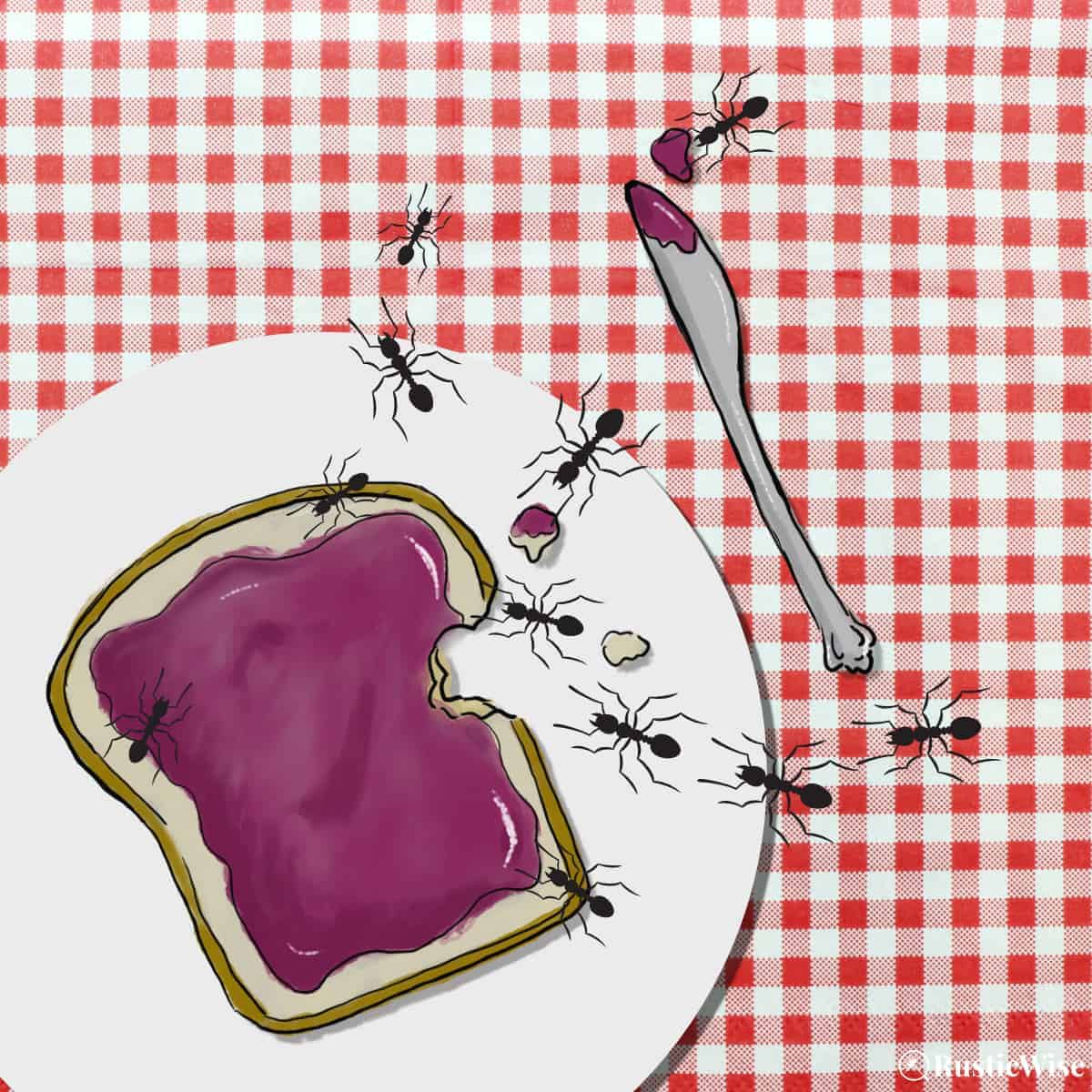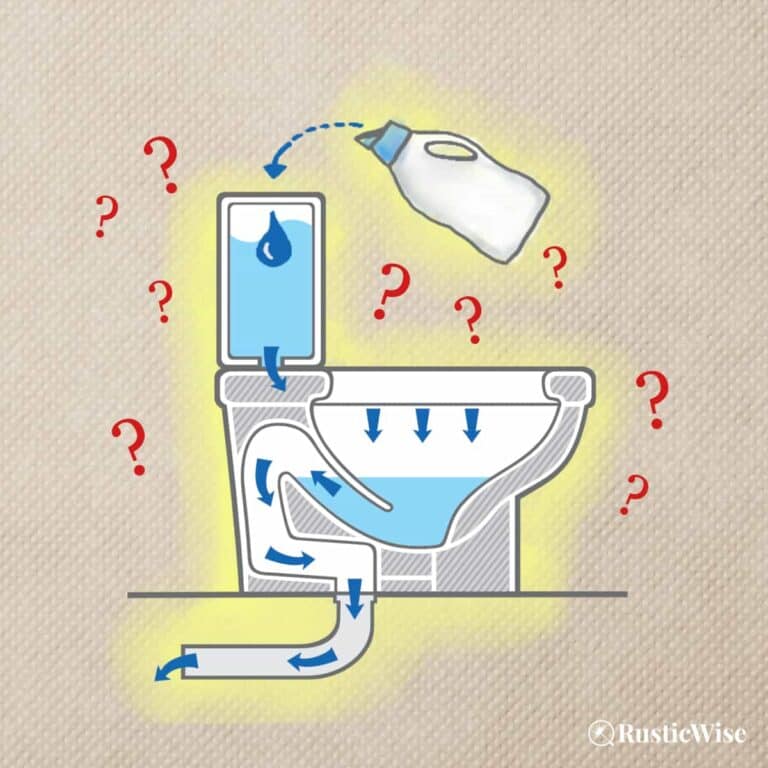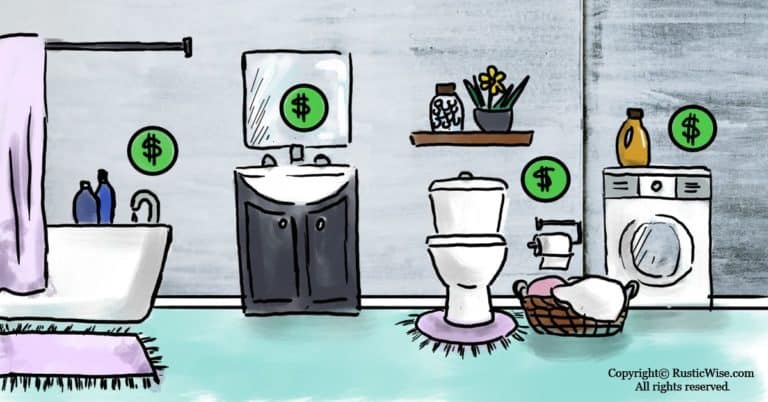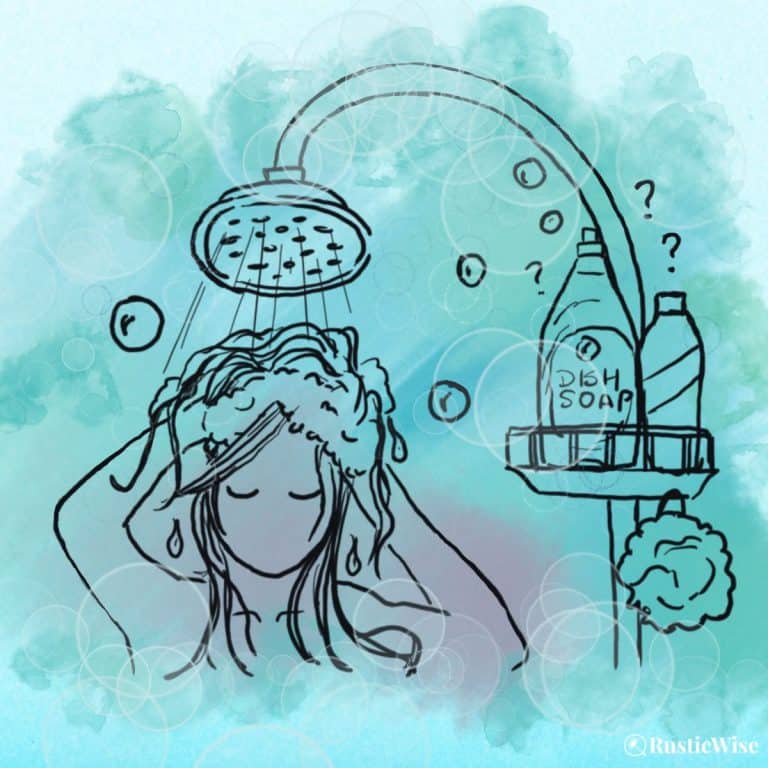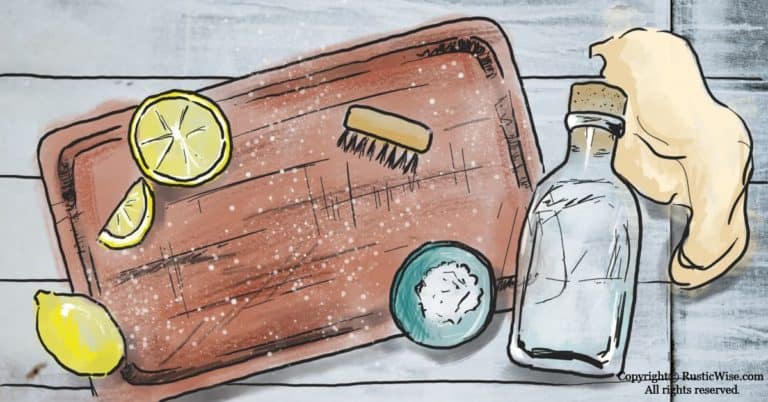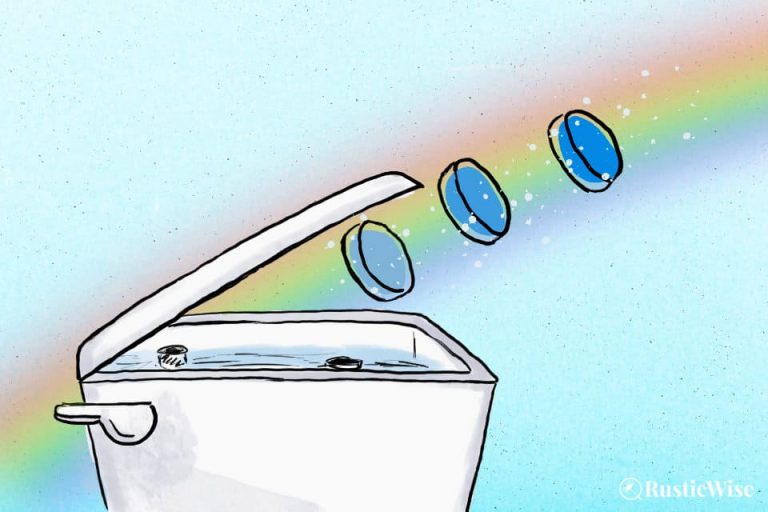Does Soapy Water Kill Ants? 7 Other Non-Toxic Ways To Repel Ants
Are ants a problem in your home? If certain pest control solutions have failed for you in the past, it may be time to seek an alternative. Ants are a problem for many homes and one of the most difficult household pests to eradicate.
People often use toxic insecticides to get rid of them, but these chemical-laden sprays can be dangerous, especially if you have children or pets at home. One of the less toxic home remedies involves using soap and water.
Does soapy water kill ants effectively? Yes, a soap spray works to coat the insect’s body, which eventually suffocates it. Soap also works to wash away the ant’s scent, which makes it harder for other members of the colony to follow the trails. And dish soap and water can drown ants as the surfactants in soap work to reduce surface tension of water, which allows these tiny insects to submerge into the water.
Let’s explore how soap works on ants and other non-toxic ways you can kill or repel them. Find out how soapy water affects ants, when it works best, and 7 other non-toxic tricks that could help you get rid of these pesky bugs.
Ants are not always a bad thing
Before you go all Rambo on the ants in your vicinity, it’s important to remember that ants (however pesky they may be) have beneficial aspects. They play an important role in the garden by feeding on other pests, such as caterpillar eggs, termites, fleas, and other dead insects.
Completely eradicating an outdoor ant population is not only unreasonable, but potentially harmful to the local ecosystem.
Proper identification of ants is key
If you really want to keep the ant population in check in and around your home, it’s important to properly identify the ant.
According to the University of California Integrated Pest Management, there are over 12,400 species of ants in the world.¹ Each species has unique feeding and nesting characteristics. Knowing what species of ant you’re dealing with can help you target the colony more effectively.
Tip: A good starting point in identifying this insect is to use a magnifying glass to determine if the ant has one or two nodes on the petiole (the first part of the abdomen).¹
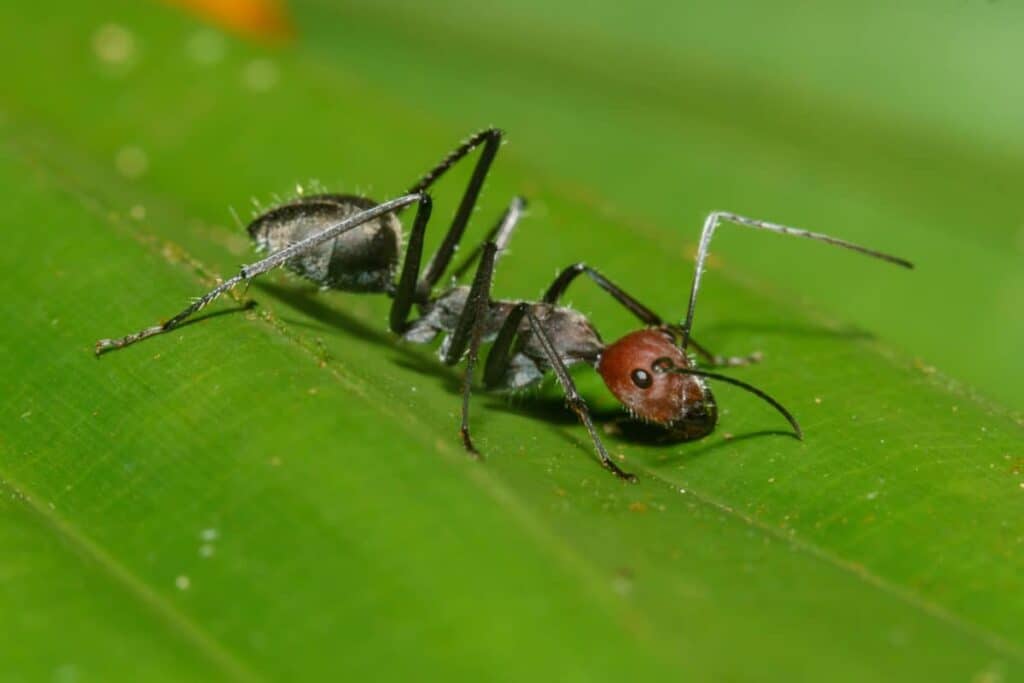
Does soapy water kill ants? Here’s how it works
Soapy water is often used as an effective and cheap way to kill ants. A soap spray works to coat their body, which eventually leads to suffocation. Like many insects, ants breathe through a series of spiracles, which are tiny openings in their abdomen.²
Another way soapy water works to repel ants is that it washes away the scent of their pheromones. Ever wonder how ants soldier along in such straight lines, one after another? Each ant releases a scent which helps other members of the colony follow the trail.
Some people use a bucket of soapy water to drown ants. Due to their small size, ants will likely not sink in a bucket of plain water. But when you add a few squirts of liquid soap, the surfactants in the solution work to reduce water tension on the surface, which allows the ants to sink.
Safety notes on using soapy water on plants
Soapy water is often recommended for pest control in gardening, but used incorrectly it can harm garden plants. A strong concentration of soap can wash away the waxy lipid coating on leaves and stems leaving the plant vulnerable to diseases and sun exposure. Many plants may develop leaf burn from phototoxicity after exposure to soap.
If you’re using a soapy spray outdoors, it’s also important to choose a biodegradable option. Many commercial soaps are not fully biodegradable.
For the safest and most effective application of soapy water to your garden plants, choose a mild liquid soap like Castile soap or dish detergent with no added coloring agents or fragrances.
Can you use any type of liquid soap?
Any brand of liquid dishwashing soap (the kind you use for handwashing dishes) should work fine. Stronger dishwasher detergents contain other chemicals such as bleach and whiteners that may not be suitable for use in the garden.
Personally, I prefer to use Castile soap such as Dr. Bronner’s as it’s plant-based and biodegradable (🌟 check out our recommended products 🛍️). This is especially important if you’re spraying ants outside.
I have not tried using hand soap, or laundry detergent, but any soap will work to coat the ant’s body, in theory. Again, hand soaps may contain moisturizers, and laundry detergents contain stronger chemicals that are not recommended for use on other plants.
DIY soap spray for ants
To make your own homemade ant spray you can use either Castile soap, or dish detergent. Grab a spray bottle!
On Dr. Bronner’s website, it recommends the following recipe for ants:
- ¼ cup (60 milliliters) Castile soap mixed with 1 quart (1 liter) of water
Note: This recipe will burn plants, so keep away from foliage! Spray directly on top of an ant hill or nest.
If you’re using liquid dish soap, make your own ant solution by combining:
- 1 part soap to 7 parts water
Note: Many online recipes call for a mixture of equal parts soap and water, but this is a bit much.
To use, spray the soapy water onto ants and anywhere ants regularly appear to wash away their scent. Wipe clean with a cloth. You’ll need to reapply as needed.
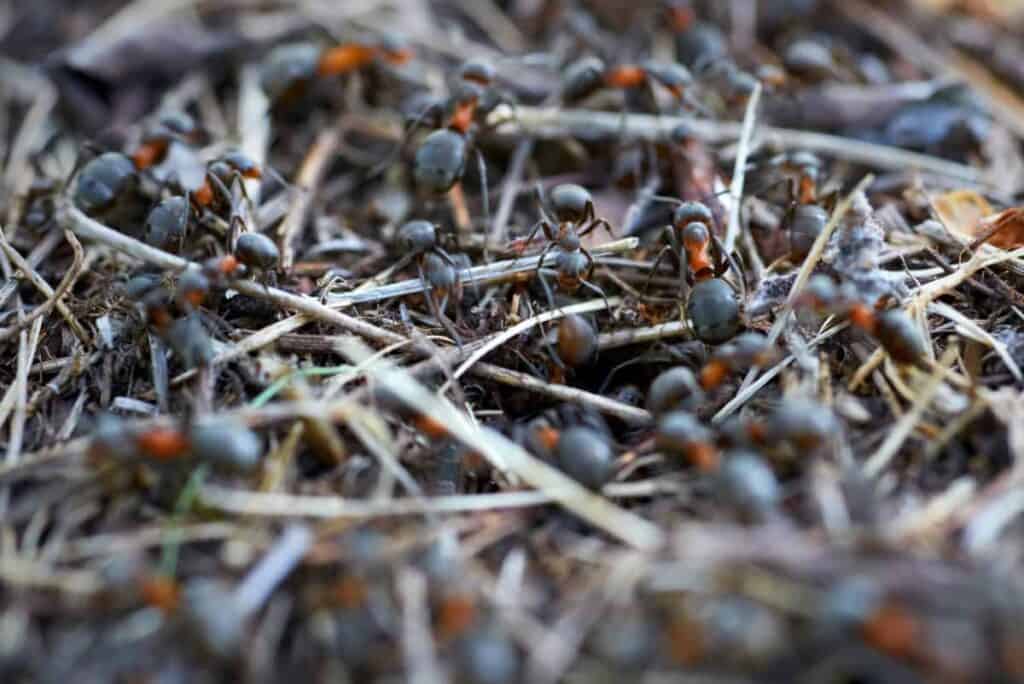
Credit: Vector State
7 Other non-toxic ways to get rid of ants
Ants can be a difficult and frustrating pest to eliminate, but there are many other methods for ant control beyond chemical solutions.
1. Prevention around the house and yard
The best way to deter ants without the use of pesticides is to remove sources of food in your kitchen, pantry, and around your home and yard. Physical removal of ants is often the most effective solution— sealing up entry points to your home, properly disposing of garbage, and cleaning up spilled food or liquid on countertops as soon as possible.
Here are some tips on managing the ant population through proactive measures:
- Remove food sources: Hungry ants are always on the lookout for new food sources and water. Keep food in the kitchen and pantry properly sealed in airtight containers—especially items such as honey, sugar, syrups, and sugary beverages. Remember to rinse out used pop cans, and take out garbage frequently. Sweep up crumbs and mop up any spills as soon as possible.
- Fix leaky faucets, sprinklers, or hoses: A leaky water source may be inadvertently sustaining an entire ant colony. It’s a good idea to fix any leaky water fixtures indoors and out.
- Seal up cracks: A caulking gun is your best bet in sealing both indoor and outdoor cracks and crevices that these tiny insects can crawl through. Look for ants around structures such as pipes, wiring, and other possible entryways.
- Look for nesting sites: Indoors, ants like to make a cozy home in potted plants. Check your indoor houseplants for ant nests. In your yard, keep long grasses, mulch and other plants several inches from your house as these are good hiding places for nests.
- Manage other garden pests: Ants feed on “honeydew” the sweet nectar produced by aphids, mealybugs, soft scales, and whiteflies. Keeping these other pests in check will also help manage ant populations.¹
Tip: If you find an ant’s nest in a potted plant, bring it outdoors. Prepare an insecticidal soap solution (insecticidal soaps are safe for plants, unlike many homemade sprays which may damage foliage). Use 1 to 2 tablespoons of insecticidal soap per quart (1 liter) of water. Submerge the entire pot into a larger container filled with insecticidal soap—the soil’s surface should be just covered with the solution.¹
2. Make a sticky barrier
If you notice ants coming inside you can stop them in their tracks with a sticky barrier. There are many commercial sticky barriers available, or, you can make your own using duct tape, or another type of adhesive tape.
Place the sticky side, face-up. Secure in place with a few tape rolls underneath. Place your sticky barrier anywhere you notice ants such as around the outside of house, around plant stands, or table legs.⁴
3. Create a food trap in a clay flower pot
As mentioned earlier, ants love to make their home in soil, especially indoors in houseplants. Make your own food trap in a soil-filled terracotta pot with a food source.
Depending on the type of ants you have, some are attracted to sugary items, while others prefer protein or fat-based foods. For example, Argentine ants generally like sweet foods year-round, but during spring, they are attracted to protein baits. On the contrary, Pharaoh ants like greasy or protein-based foods, while fire ants like oil-based foods.¹
Place the flower pot traps strategically around the house. Once ants have moved in, douse them with boiling water.⁴
4. Cornmeal
Cornmeal is a safe, easy, and inexpensive method to kill ants (albeit, slowly). While ants are attracted to cornmeal, their bodies cannot digest it.
This causes them to gradually starve. While this method takes some time, it’s a good method if you have small children or pets at home.
Liberally sprinkle cornmeal around an anthill, or colony, and practice some patience while the cornmeal does its work.
5. Boiling water
A pot or kettle of boiling water poured over an anthill will kill ants without any pesticides. The heat and steam will kill the ants instantly without the use of harmful chemicals. However, it’s important to note that this method may not be effective for larger ant infestations and may need to be combined with other pest control methods.
Please exercise caution when handling boiling water to avoid injury.
6. Diatomaceous earth (food grade)
This desiccating dust kills ants by drying them out. It’s important to use only food-grade diatomaceous earth which is safer to use around people and pets.³
To use, simply sprinkle the powder in wall cracks and then seal them. The dust is effective so long as it’s kept dry and can last for years.
Or sprinkle some onto the perimeter of carpets. Leave for 3 days, then vacuum.
Note: When working with diatomaceous earth, make sure to use a mask and eye protection.
7. Oil-based sprays
Chemical-based pesticides have been linked to a range of health and environmental concerns, making the search for safer alternatives more important than ever. Fortunately, there are several plant-based oils that have been found to be effective at repelling pests without harmful side effects.
The following plant-based oils are generally considered safer than chemical-based pesticides: cedar oil, garlic oil, mint oil, and orange oil.
Related questions
Does soap spray work on caterpillars?
Unfortunately, soapy water is less effective on larger insects like caterpillars and beetles. It works best on smaller, soft-bodied insects such as aphids and mites.
Can soapy water harm plants?
Yes, in strong solutions, homemade soap sprays can harm leaves and stems by stripping away the waxy protective coating. Many plants develop leaf burn as a result. Please ensure you test your plant spray in a small area before using, and always dilute your soap!
Does soap work on wasps?
Yes, a soap spray can be effective on wasps. It’s recommended you use a hose-end sprayer for better (and safer) results.
👉 If you like this post, see our complete Indoor Growing Collection.
Would you like more timeless tips via email?
Fun tips to help you live an independent, self-sustaining lifestyle. Opt-out at any time.


References
- University of California Integrated Pest Management, Ants, https://ipm.ucanr.edu/PMG/PESTNOTES/pn7411.html. Accessed March 2023.
- BBC Science Focus, How do ants breathe?, https://www.sciencefocus.com/nature/how-do-ants-breathe/. Accessed March 2023.
- Beyond Pesticides, Least-Toxic Control of Ants , https://www.beyondpesticides.org/resources/managesafe/choose-a-pest?pestid=7. Accessed March 2023.

Author: Josh Tesolin
Josh is co-founder of RusticWise. When he’s not tinkering in the garden, or fixing something around the house, you can find him working on a vast array of random side projects.

